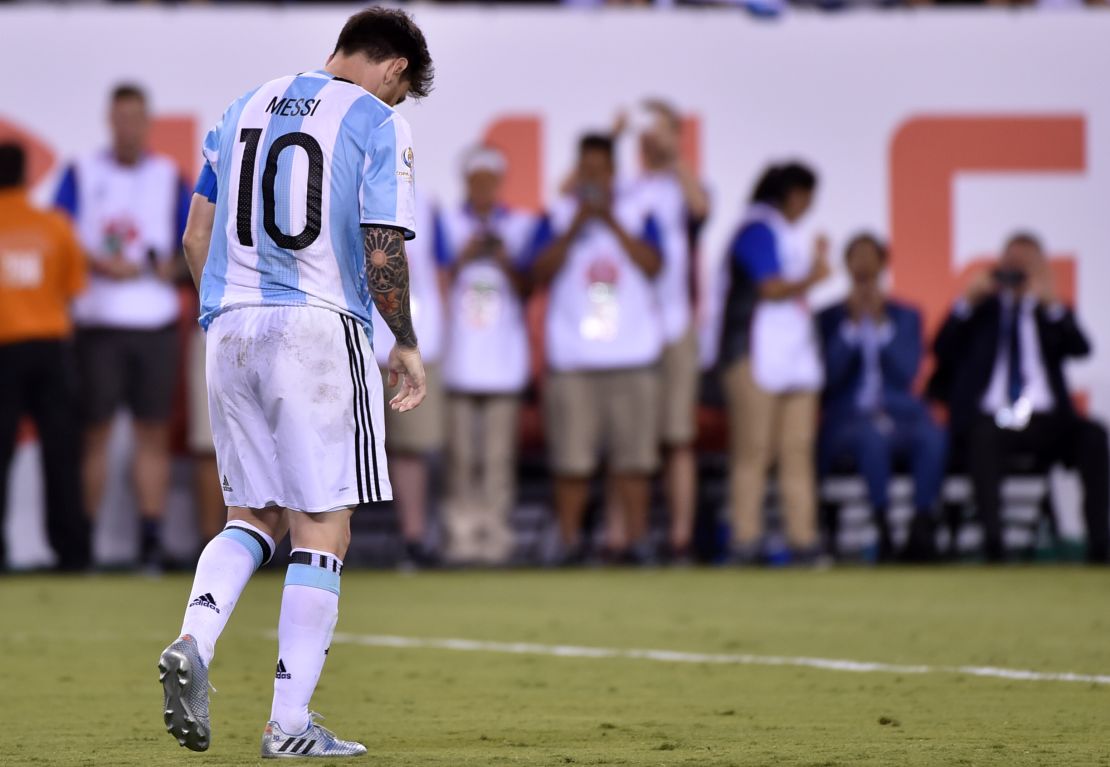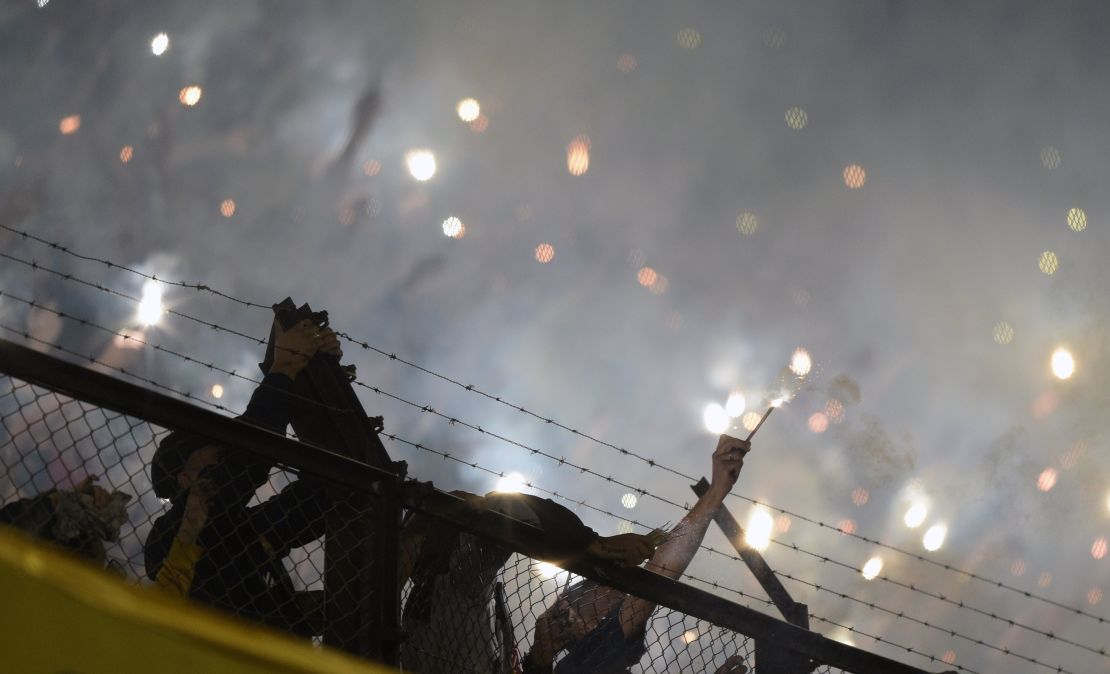The Sri Lankan capital of Colombo was the unlikely location for the start of the 2018 World Cup qualifiers which, after more than two and a half years, begin to draw to a close.
On March 12, 2015 Sri Lanka were beaten 1-0 on home soil by Bhutan in a match that garnered little attention outside of the island nation, but events in this week’s qualifiers could have huge ramifications for Russia 2018.
CNN Sport takes a look at some of the main talking points from across the world in the upcoming qualifiers.
Eight of the 32 places up for grabs at the World Cup have been claimed:
- Russia (hosts)
- Brazil
- Iran
- Japan
- Mexico
- Belgium
- South Korea
- Saudi Arabia
Who else can qualify and who is on the brink of missing out?
Syria seek history
Syria has further to travel for the “home” leg of their Asian qualifier than opponents Australia.
With the country ravaged by the ongoing civil war – in which the United Nations estimates 400,000 Syrians have been killed – the “Qasioun Eagles” have been forced to play their recent home qualifiers 4,500 miles away in Malaysia.
After Macau refused to continue hosting Syria’s home matches, FIFA looked set to throw them out of World Cup qualifying, before Malaysia stepped in at the final hour.
Having never before featured at the World Cup, Syria’s hopes were kept alive thanks to Omar Al Somah’s 92nd minute equalizer against Iran in the final game of the group stages, which secured third place and a play-off against Australia.
The winner of the tie, played over two legs, will play one final qualifier against a team from the CONCACAF region for a place at Russia 2018.
It’s not out of the question that Syria could upset an Australia side that has failed to impress throughout qualifying and looks to have stagnated under coach Ange Postecoglou since the 2014 World Cup.
Though not everyone in Syria sees the national team’s rise as an uplifting, against all odds story. Many argue Bashar al-Assad and his regime are using the success to portray a false positive image of the country given the civil war.
READ: World Cup workers exposed to ‘potentially fatal’ heat
Argentina on the brink
So accustomed to relentless success with Barcelona over the years, Lionel Messi has been made to suffer on the international stage with Argentina.
On the end of three successive defeats in major finals – World Cup 2014, Copa America 2015 and Copa America 2016 – doubts continue to linger about Messi’s ability to produce on the international stage.
The third of those losses – and the second in two years against Chile – caused Messi to announce his retirement from international football, though he did promptly reverse his decision in an attempt to help a struggling Argentina qualify for the World Cup.
His return, however, didn’t spark a slumbering Albiceleste to life. Soon after a man of the match display in his first game back – a 3-0 win over Colombia which proved to be a false dawn – Messi led the national team in a boycott of the Argentine media.
A few months later, in a home victory over Chile, Messi was banned for four games for verbally abusing an assistant referee, though that ban was overturned after the Barcelona star had already served one match of the suspension.

It’s a sign of the instability of the Argentina team that it’s had three coaches during these qualifiers.
Gerardo Martino, who led Argentina to successive Copa America final defeats, was succeeded by Edgardo Bauza.
A string of poor results, coupled with Jorge Sampaoli’s availability at the end of the season with Sevilla, saw Bauza leave his post and finally allow the 57-year-old former Chile coach to take his dream job.
Argentina’s remaining make or break fixtures come at home to Peru, South America’s in-form side, and away to Ecuador in the altitude of Quito.
Thursday’s match against Peru will be played at Boca Juniors’ Bombonera stadium in Buenos Aires rather than their traditional venue of the Monumental stadium, which is home to Boca’s rivals River Plate.
The Bombonera is famed for its raucous atmosphere, though it was also where Peru drew 2-2 with Argentina in a World Cup qualifier in 1969 to ensure the Albiceleste wouldn’t go to the 1970 tournament.
I never saw such disappointment in a dressing room; several of my team-mates were crying and Adolfo Pedernera [Argentina’s coach] was sat silently in a corner smoking,” Argentine player Alberto Rendo, told FIFA.com.

Such is the magnitude of the upcoming fixture, Peru coach Ricardo Gareca has reportedly requested a police presence on the rooftops around his training camp to deter Argentine spies.
“I’d prefer to play World Cup Finals than deciders like the one against Peru,” Argentina’s general manager Jorge Burruchaga, who played in a World Cup qualifier against Peru in 1995, told FIFA.com.
That game ended in a 2-2 draw with Argentina qualifying for Mexico 1986, while Peru went to the play-offs, where they lost to Chile.
“It was a very stressful occasion, whereas the finals I played in Mexico and Italy were very happy occasions because you knew you were close to achieving something great,” added Burruchaga.
READ: How football’s culture club wins with the help of ballet
Super Eagles soar
Nigeria remain on course to qualify for a third successive World Cup, a feat they have achieved only once before in their history.
Currently sitting top of Group B, a home victory against nearest rivals Zambia – who sit just three points behind – would guarantee qualification to Russia 2018.
In the same group, meanwhile, Algeria – who impressed at the 2014 World Cup and almost knocked out eventual champions Germany – are bottom with one point from four games, prompting fans to ask: how did it all go so wrong?
In Group E, neutral’s favorites Uganda are still in with a chance of qualifying for a first ever World Cup. The Cranes, under Serbian coach Milutin Sredojević, reached the Africa Cup of Nations in 2016 for the first time in almost 40 years.
Though they were eliminated in the group stages, the country has carried that momentum forward and sits in second place behind powerhouses Egypt, despite unrest in the Ugandan FA.
Sredojević terminated his contract in July over unpaid wages – though the FA insist the $54,000 he is owed will be paid – and local coaches Moses Basena and Fred Kajoba were brought in to lead the team through qualifying.
Uganda face a huge home match against third place Ghana, while leaders Egypt welcome Congo.
Panama out for US revenge
Four years after the US delivered Panama their most painful blow, Los Canaleros are out for revenge.
In 2013, with just two minutes remaining on the clock, Panama led an already qualified US Men’s National Team 1-0 in the final game of CONCACAF’s Hexagonal qualifier.
Victory would have sent Panama through to an intercontinental play-off against New Zealand and knocked Mexico out altogether.
With a first ever World Cup appearance within their grasp, the US scored two goals in stoppage to cruelly snatch it away from Panama and allow Mexico to qualify through the play-offs.
The last-gasp victory prompted one of football commentary’s most memorable outbursts.
“We love you,” cried the Mexican commentator. “We love you forever and ever. God bless America!”
This time around, a Panama victory on US soil would guarantee them a place in Russia next year and consign the USMNT to the intercontinental play-off – although they risk missing out altogether should other results go against them.
READ: Amid violence, Camp Nou game ‘worst of my life,’ says Pique
European stars to miss out?
Messi isn’t the only international household name which could miss out on Russia 2018.
Despite boasting the considerable talents of Arjen Robben, Daley Blind and Kevin Strootman, the Netherlands – still reeling from a failure to qualify for Euro 2016 – could yet miss out on successive international tournaments.
Currently third in Group A, three points behind Sweden who sit in the play-off place, the Oranje face a must-win trip to Belarus before welcoming Sweden in what could be the decisive fixture of the group.
Meanwhile, Wales’ World Cup hopes were dealt a considerable blow with the news talisman Gareth Bale would miss the final two qualifiers through injury.
Sitting precariously in second place in Group D, Wales need victories over Georgia and Ireland – who are lurking just a point behind – to ensure the Real Madrid star doesn’t miss out on the World Cup.




